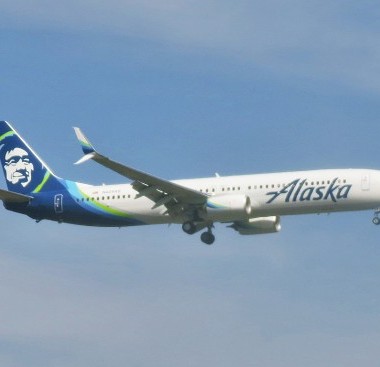JetBlue says delayed planes, engine woes constraining growth
JetBlue Airways Corp. says the biggest hindrance to the carrier’s growth are continued delays in aircraft deliveries and planes that it’s forced to park waiting for engines or repairs.
The airline has said it will get just 19 new Airbus SE aircraft this year, instead of the 30 it originally expected. And July’s discovery of problems with some Pratt & Whitney parts affects some JetBlue engines that will have to be taken off planes by the middle of this month.
The carrier is counting on acquiring rival Spirit Airlines Inc. for a growth burst that would make it the fifth-largest US carrier. But a legal challenge by the US Justice Department on the grounds the deal would violate federal antitrust laws means that, for now, JetBlue has to maintain an alternate stand-alone plan for expansion. The airline needs to be larger to compete more effectively with carriers like American Airlines Group Inc. and Delta Air Lines Inc.

“We have a very big order book of new airplanes, but they’re all coming late,” Chief Executive Officer Robin Hayes said in an interview with Matt Miller for Bloomberg Chief Future Officer. “On top of that, there are some engine issues. And so, we actually have airplanes on the ground today with no engines because there isn’t enough engines to support them. I would say right now that is the biggest inhibitor to that organic plan.”
Chief Financial Officer Ursula Hurley has said JetBlue now expects to receive 30 new planes in 2024, down from its original 43 ordered. But this was before factoring in the latest issue of potentially faulty Pratt & Whitney parts.
On Sept. 11, RTX Corp. expanded the scope of required engine checks and said it will affect nearly its entire fleet of turbines powering Airbus’s latest A320. JetBlue had already been working with Pratt, a unit of RTX, to determine if its fleet of A220 aircraft also were affected. It has tried to lease extra engines, but the available supply is limited.
In August, JetBlue had two Airbus A321neo planes that had been grounded “for the last few months” on engine issues, with the number of parked planes expected to approximately double through the end of the year, she said. JetBlue declined to provide an exact count.
“We will need to get creative on how we source airplanes in order to continue the JetBlue growth trajectory,” Hurley said in the Bloomberg TV interview. “We need to be very flexible in terms of our planning assumptions and we very much value transparency from the manufacturers.”
Airbus slashed its annual delivery target twice last year because of shortages in components ranging from seats to semiconductors to raw materials. The resulting delays have also affected operations at carriers including Spirit, Germany’s Deutsche Lufthansa AG and Hungary’s Wizz Air Holdings Plc.
Similar Stories

Lufthansa Cargo and Maersk launch cooperation to support decarbonization of airfreight
View ArticlePort Authority of New York and New Jersey airports see spookily spectacular surge in October
Port of New York and New Jersey surpasses 700,000 TEUs for eighth consecutive month
View Article
airBaltic Cargo partners with cargo.one to accelerate and enhance its digital sales
View Article
Chapman Freeborn agrees partnership with Portuguese multimodal logistics specialist
View Article
Cathay is ready for the commissioning of the three-runway system at Hong Kong International Airport
View ArticleUnited Airlines Holdings Inc. upgraded To ‘BB’; outlook stable
• United Airlines Holdings Inc. is on track to generate credit measures in line with our previous upside rating threshold this year, and we expect improvement in 2025. • The…
View ArticleGet the most up-to-date trending news!
SubscribeIndustry updates and weekly newsletter direct to your inbox!





